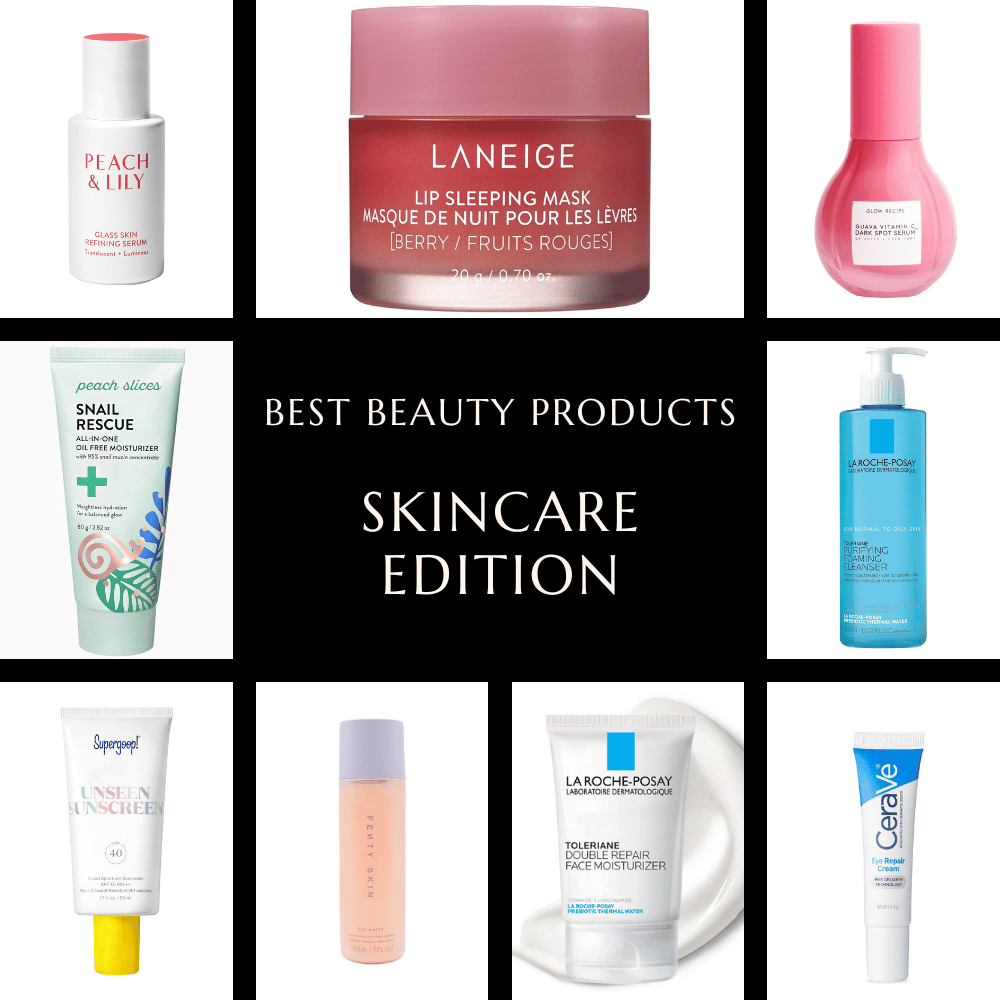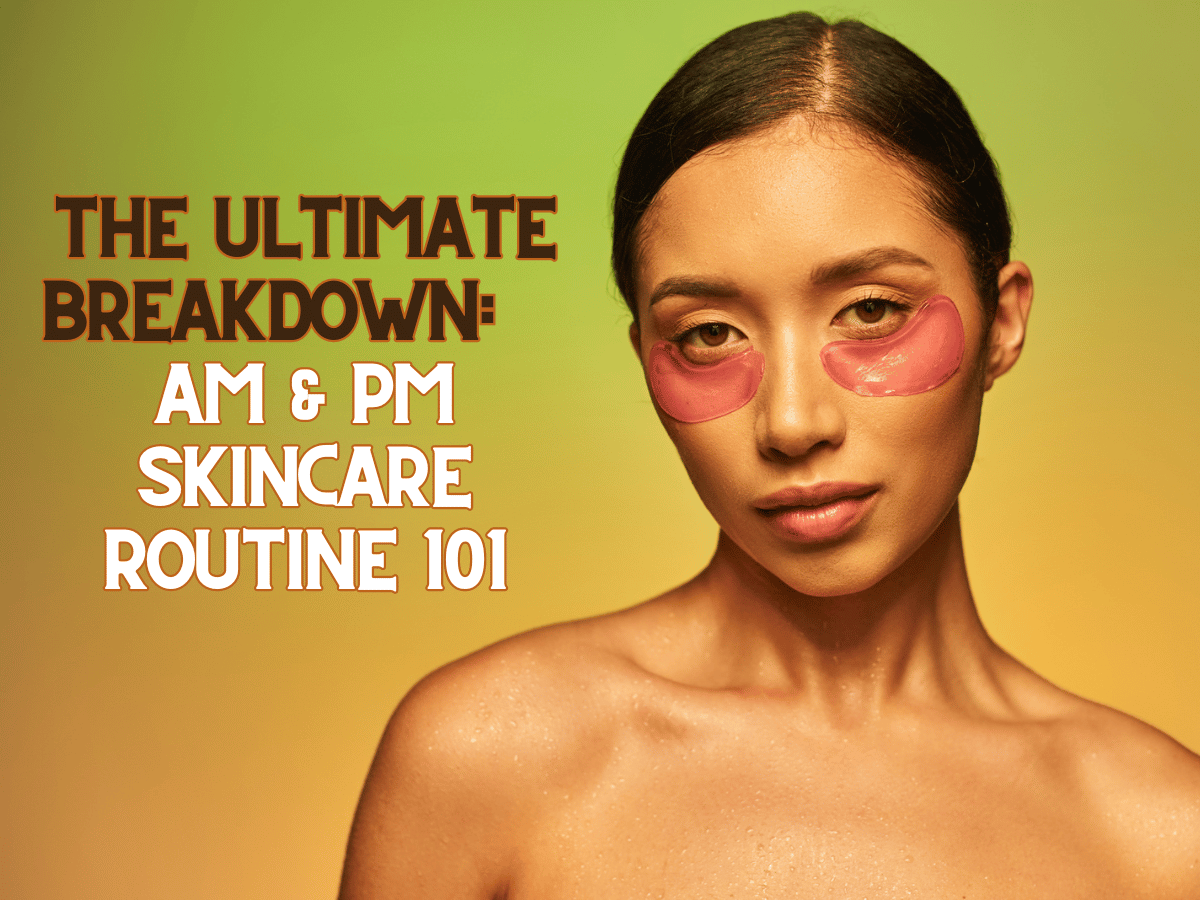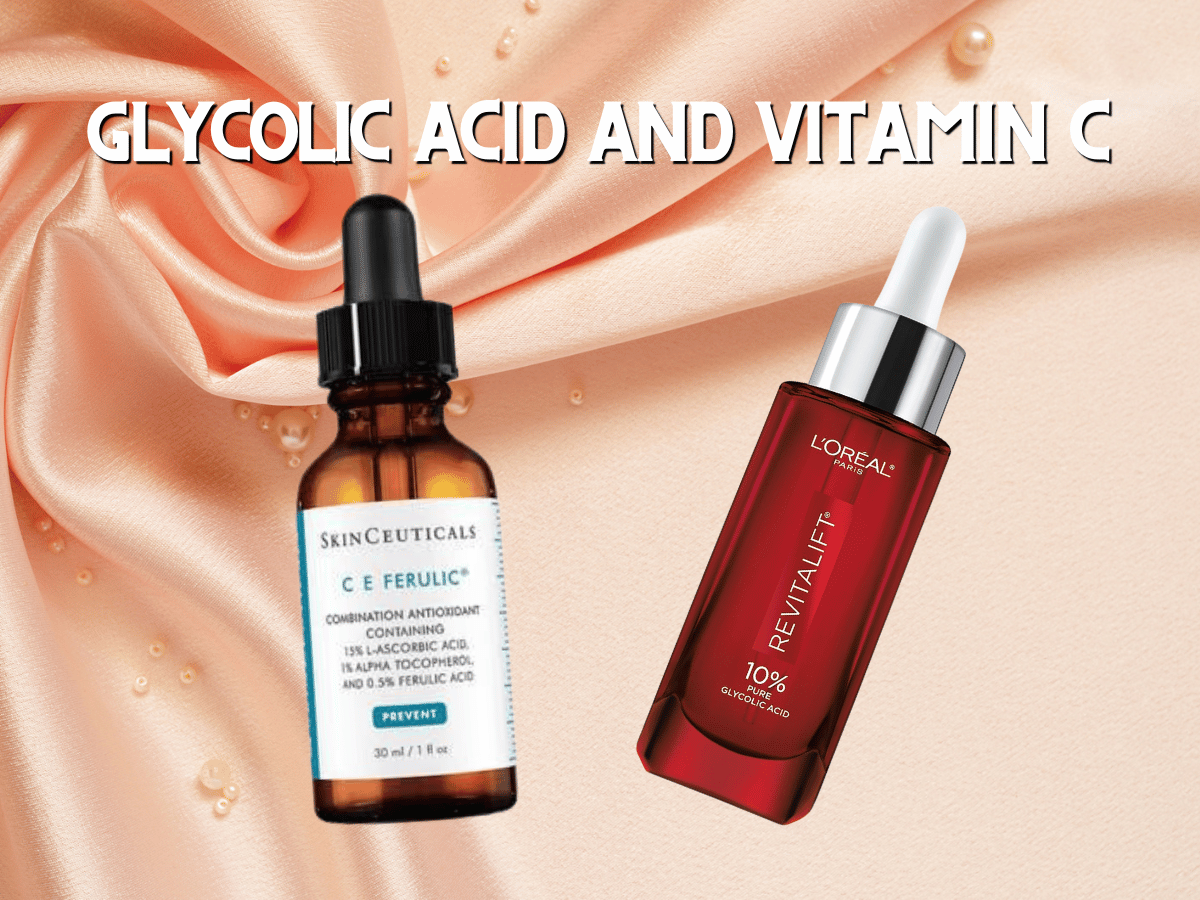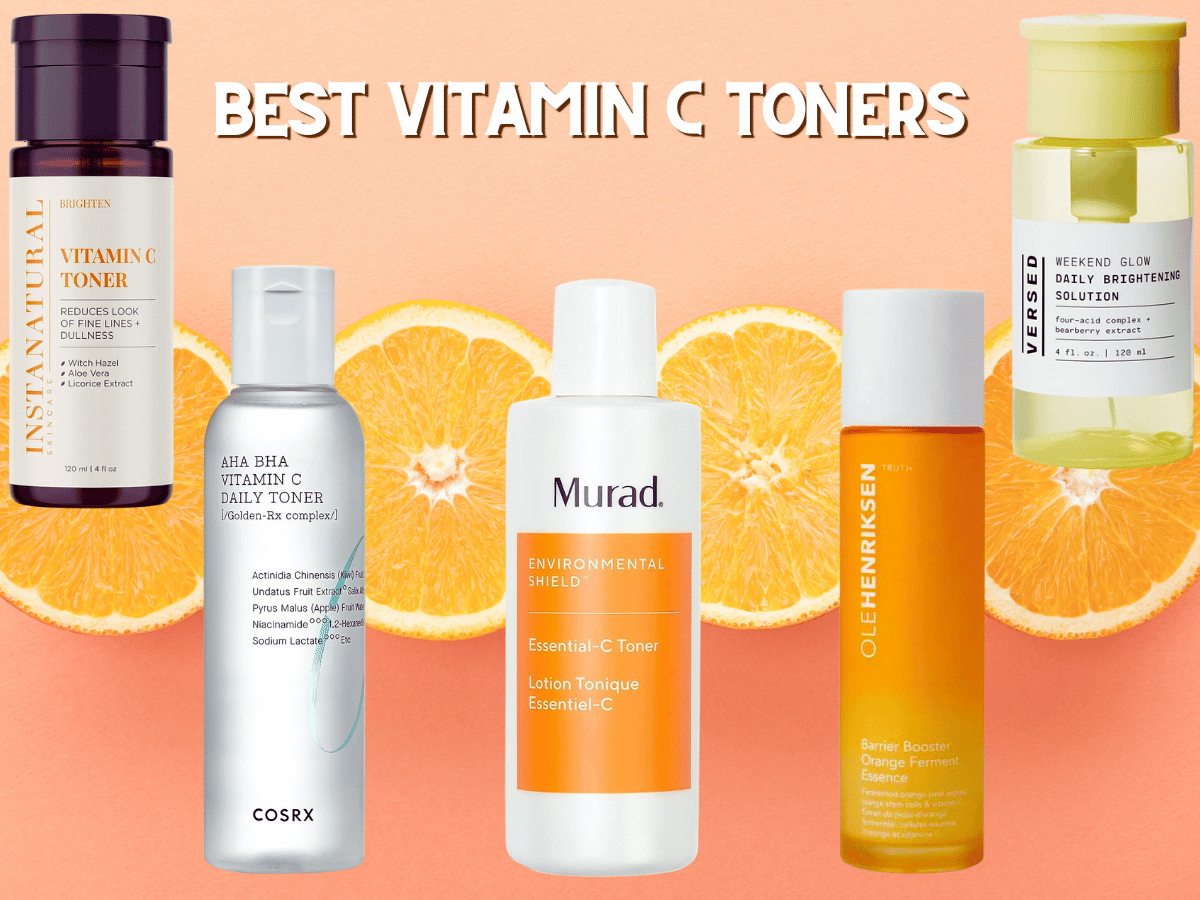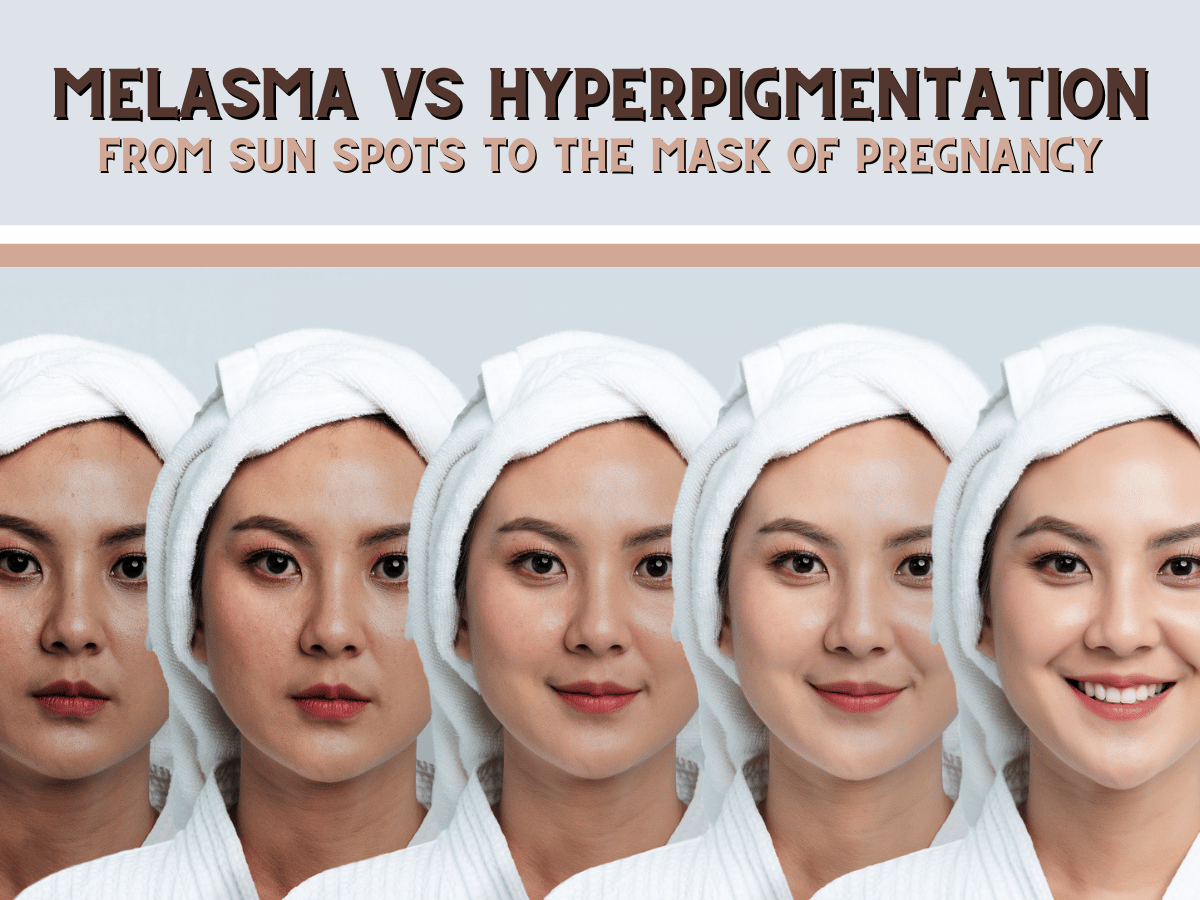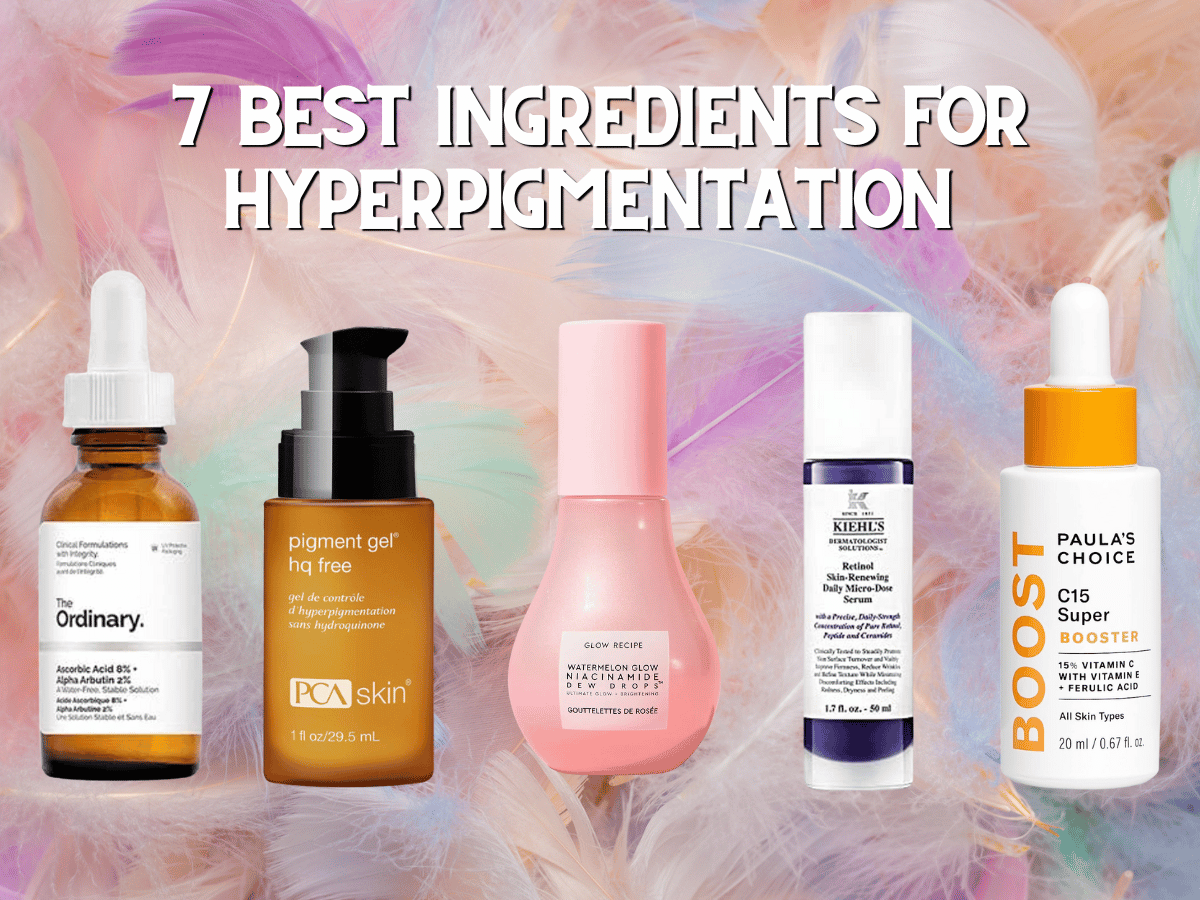CeraVe Moisturizing Cream vs Lotion: Do You need One, None, or Both?
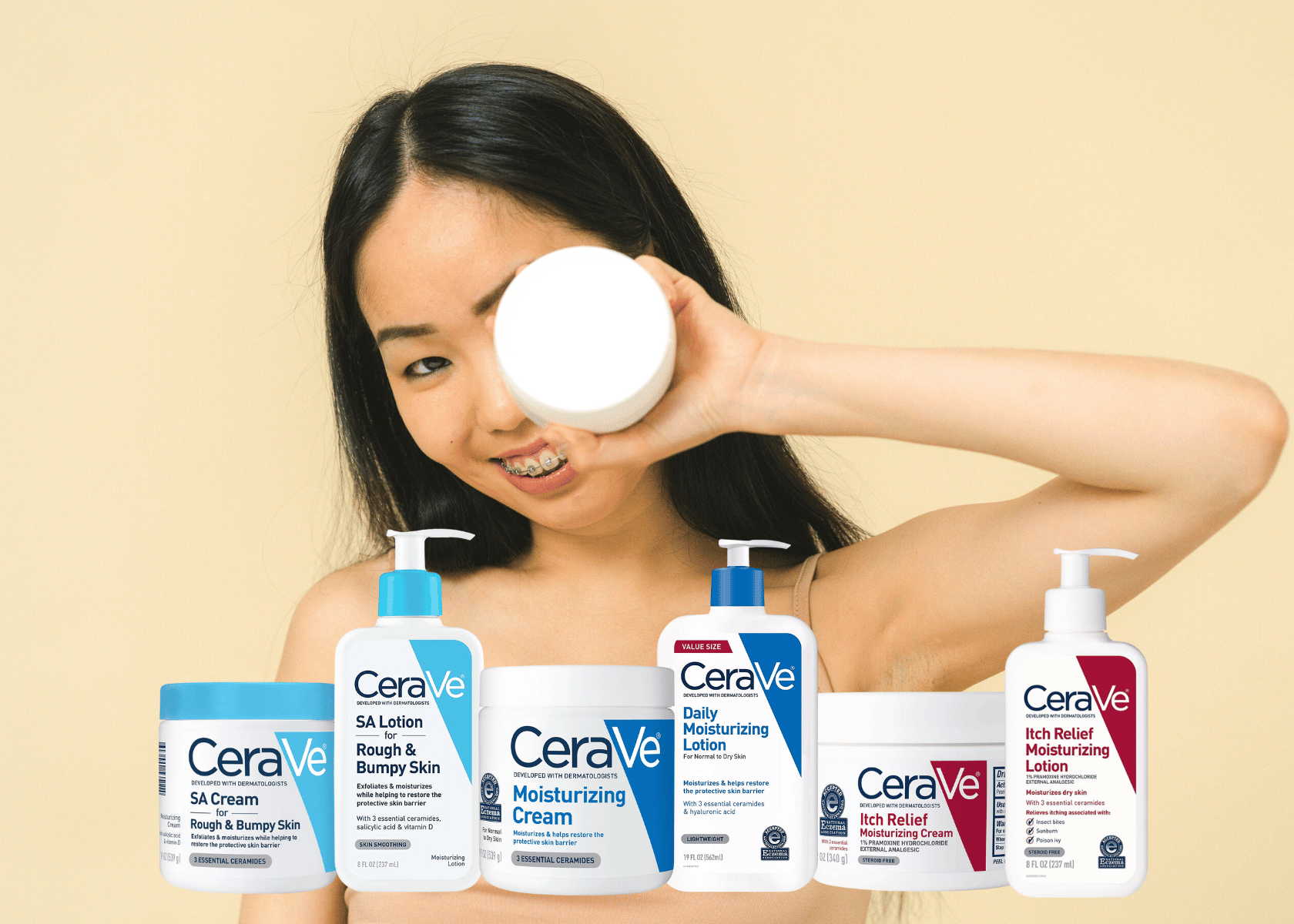
You're at the drugstore back in the skincare section trying to figure out what the difference is between all the products that are on the market.
This time, you've done your research and you know your brand of choice is CeraVe.
You locate the moisturizers only to arrive at another dilemma: Cream or Lotion?
Though they both hydrate, there are a few things to consider.
Rather than having you Google down a rabbit hole in the middle of the store, in this blog post, we will compare the CeraVe Moisturizing Cream and Lotion to help you find your match from the comfort of your home!
What is CeraVe?
CeraVe is a brand that's been in limelight many times before and will most likely continue to hold that spot for years to come. So here's their backstory.
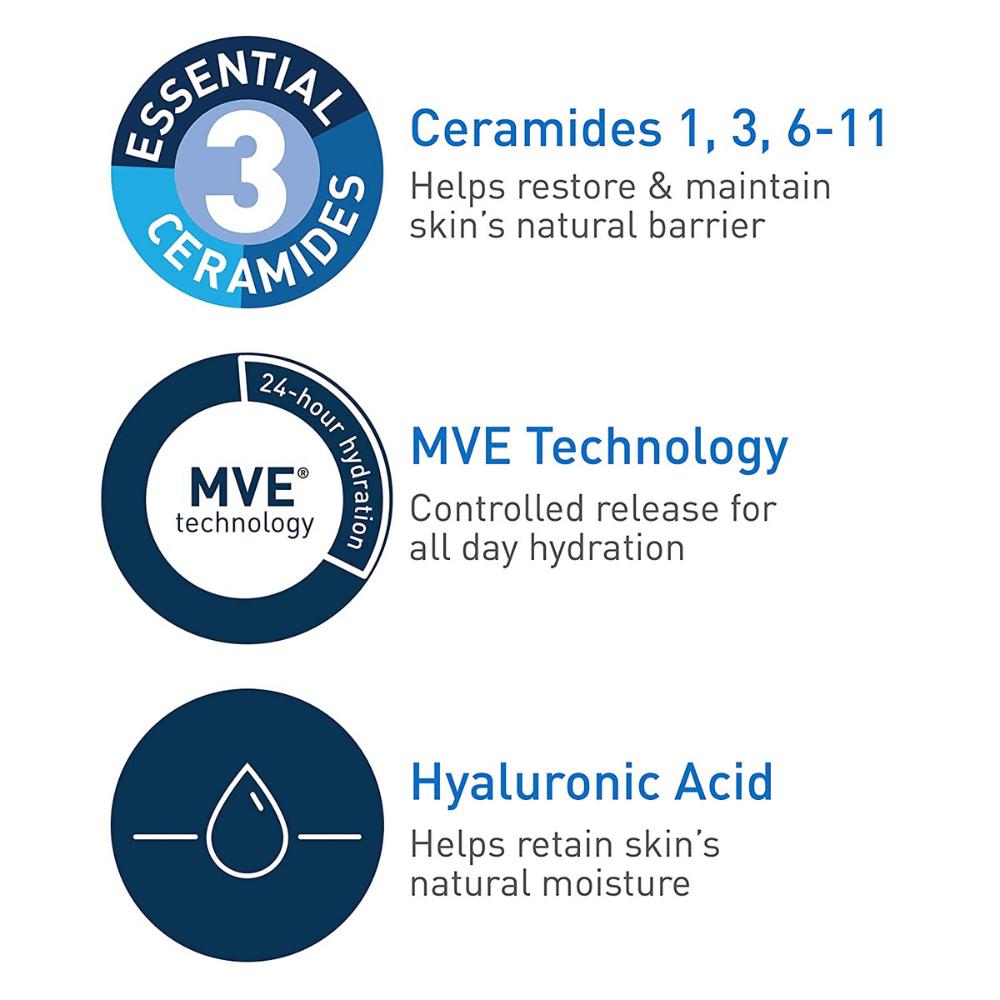
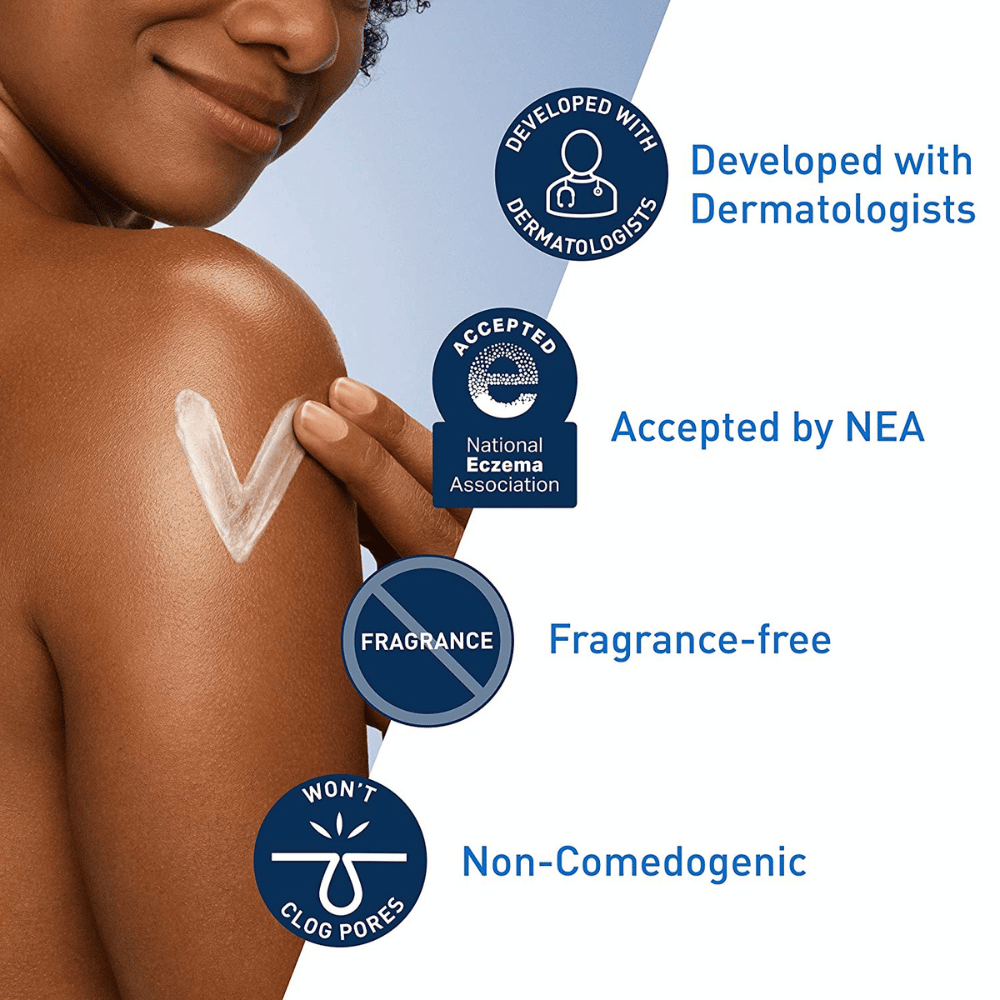
CeraVe skincare products were formulated by dermatologists with hyaluronic acide and three ceramides chosen as the primary ingredients to help restore and maintain your skin's barrier from moisture loss and outside irritations.
Bonus, CeraVe products caters to a multitude of problems including skin concerns like Eczema, thereby earning a lot of their products the acceptance of the National Eczema Association.
How to Make the Most out of this Article
We all have our own skincare goals and we want to help you reach yours.
Before you dive into our reviews, take a minute to jot down the top 2 to 3 concerns that you hope to solve with this product.
Throughout the reviews, we highlight key features to help you browse with ease. Read on to spot the ideal moisturizer for your needs!
CeraVe Moisturizing Cream vs CeraVe Lotion
Here we are, a battle between two favorites. We bring to you the simple, yet ultimate, breakdown between the much-loved cream and lotion.
Similarities
Just like the other CeraVe products on the market, both products are:
- Made up of hyaluronic acid and 3 essential ceramides
- Made for normal to dry skin
- Fragrance-free, allergy-tested, and non-comedogenic with the cream falling under the paraben-free category as well
Differences
The main difference between the two products comes down to two points:
- Consistency
- Skin Type
CeraVe Moisturizing Cream
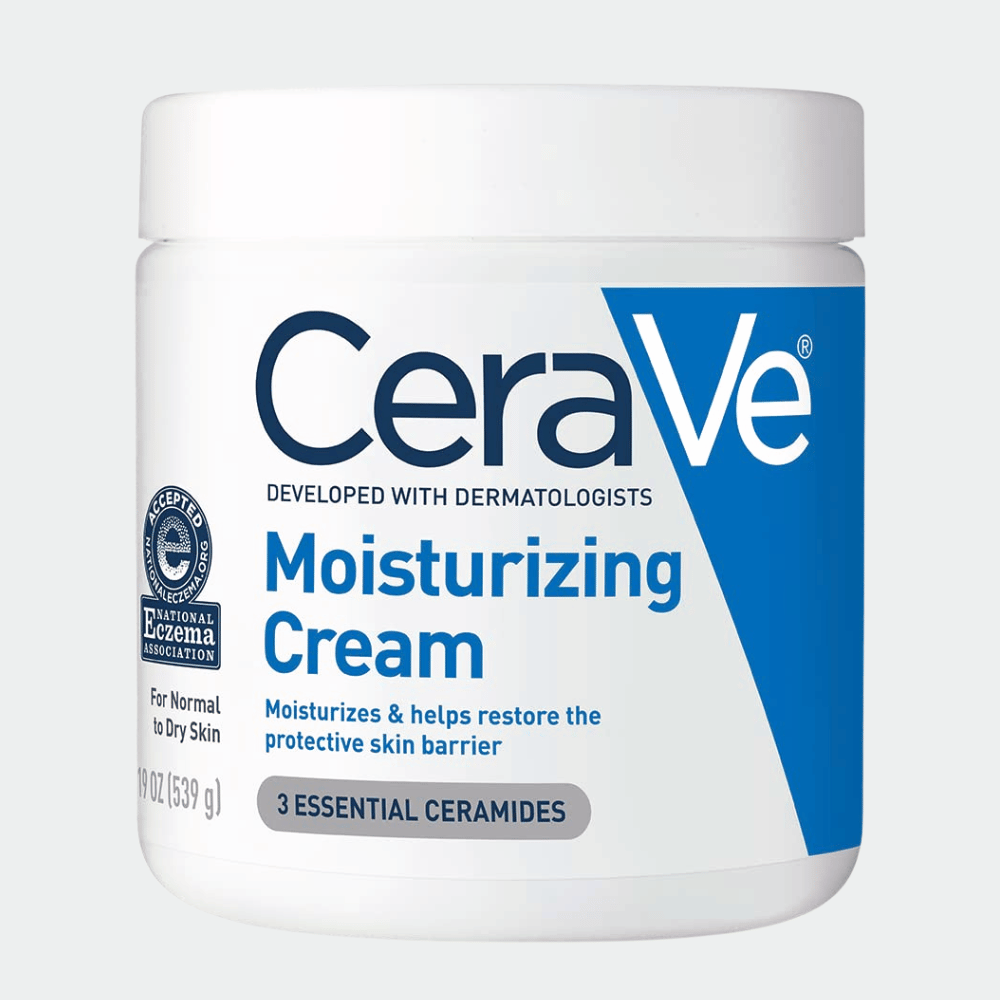
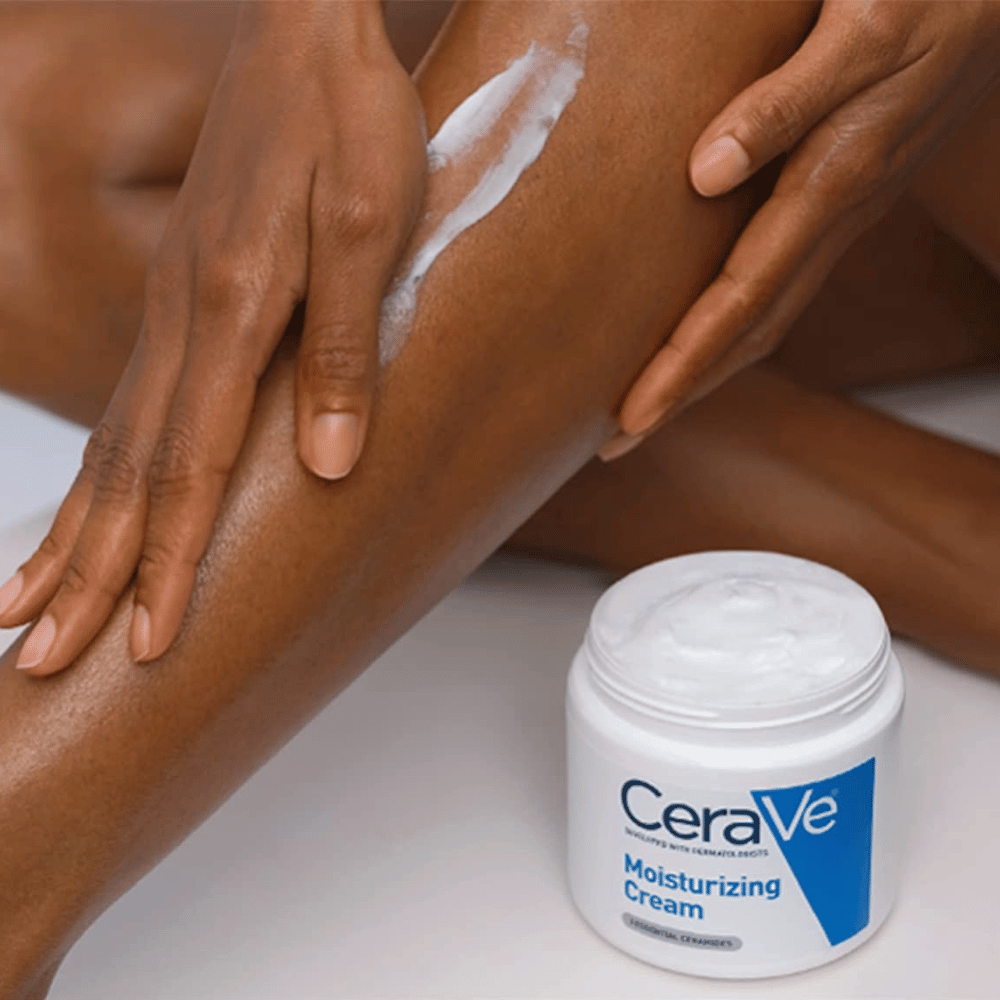
The cream has a rich and velvety consistency making it ideal for even the driest and itchiest of skins.
The thicker formula of the cream not only retains moisture but also forms a protective barrier to ensure the skin remains hydrated and healthy.
CeraVe Daily Moisturizing Lotion
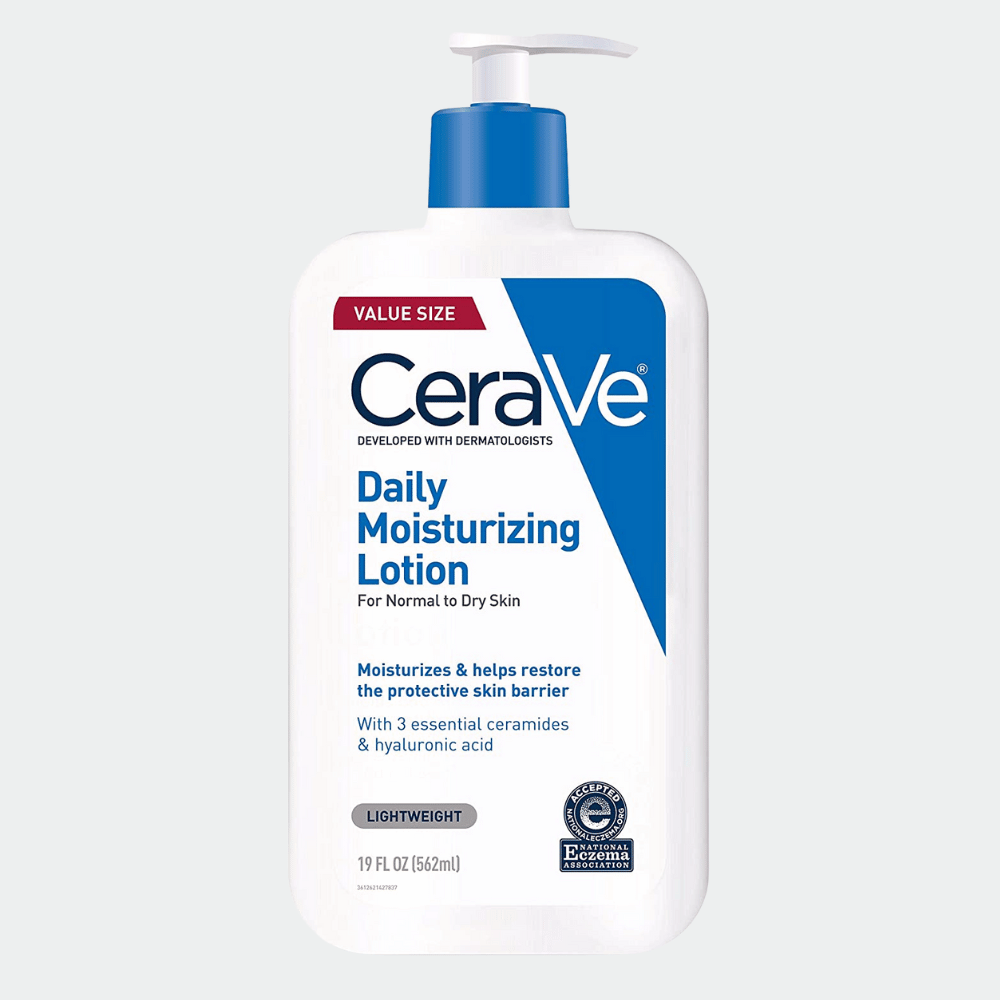
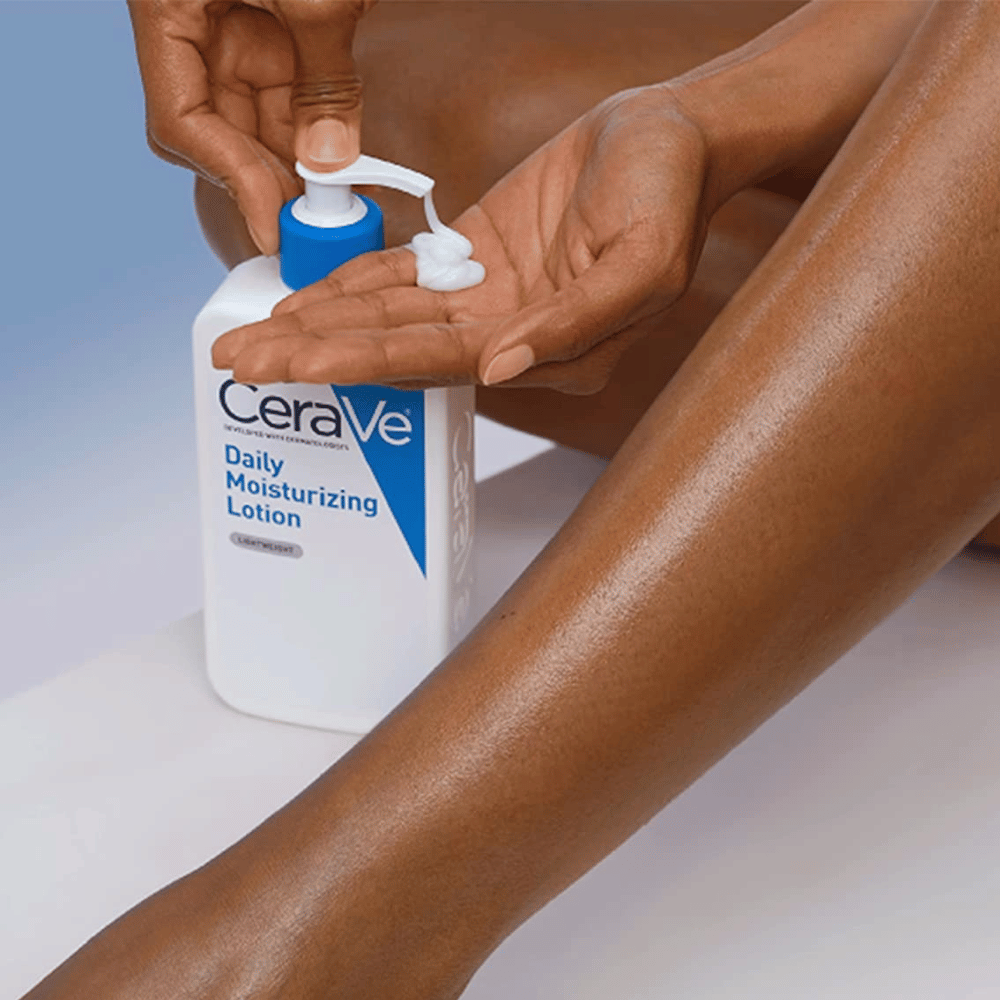
The lotion, on the other hand, is lightweight, absorbs easily into the skin, and feels smooth and silky with its long-lasting hydrating properties making it ideal for our normal to dry-skinned readers.
Here's How You Can Pick
If you suffer from extremely dry skin or skin concerns like eczema that needs an extra bit of hydrating protection, we suggest giving the CeraVe Moisturizing Cream a try.
If you have normal to slightly dry skin that loves the hydrating but needs some room to breathe, try the lightweight, easy-absorbing lotion.
Other CeraVe Cream and Lotions We Like
Though the Cerave Moisturizing Cream and Lotion are fan favorites, the brand has other beloved products for your more specific concerns.
If your skin is rough, dry, or scaly, try SA Lotion and Cream for Rough & Bumpy Skin.
It gently exfoliates to help soften and smooth the surface of your body while leaving it feeling soft, supple, and, best of all, non-greasy.
Lightweight Option: SA Lotion for Rough & Bumpy Skin
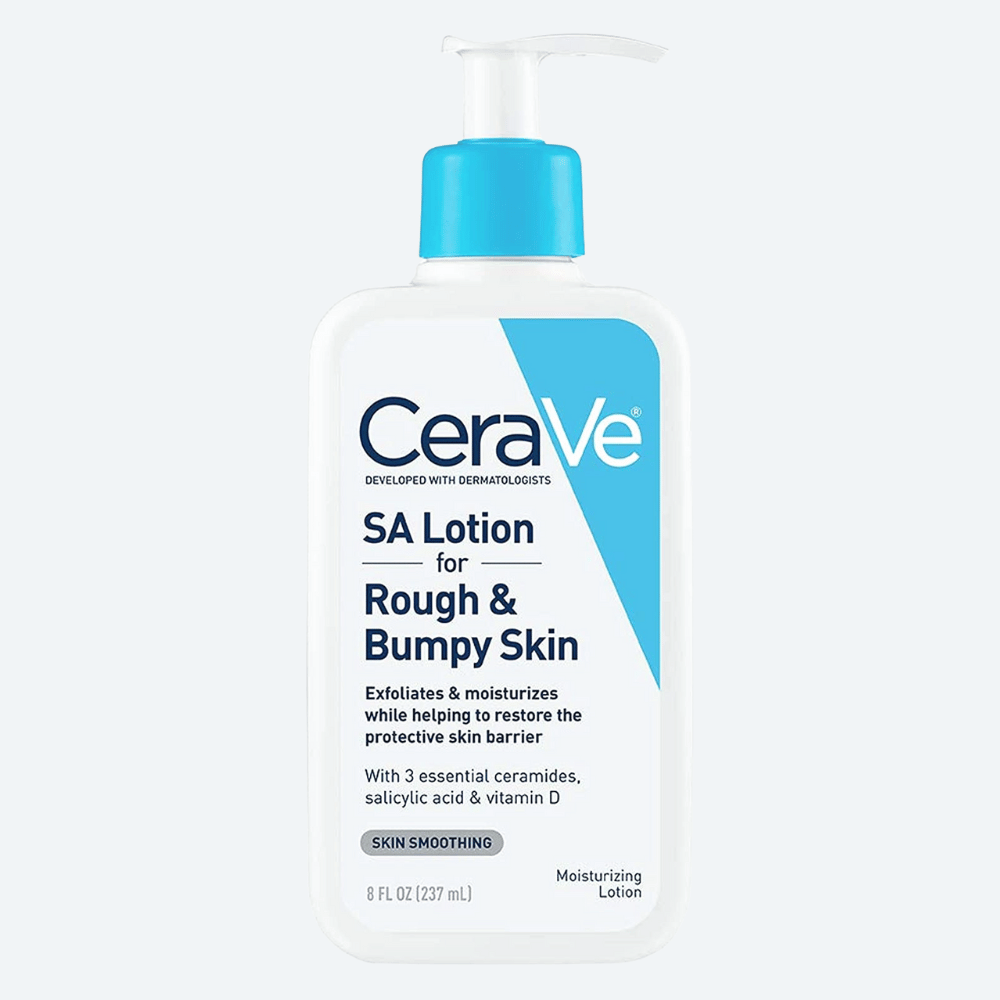
Heavier Option: SA Cream for Rough & Bumpy Skin
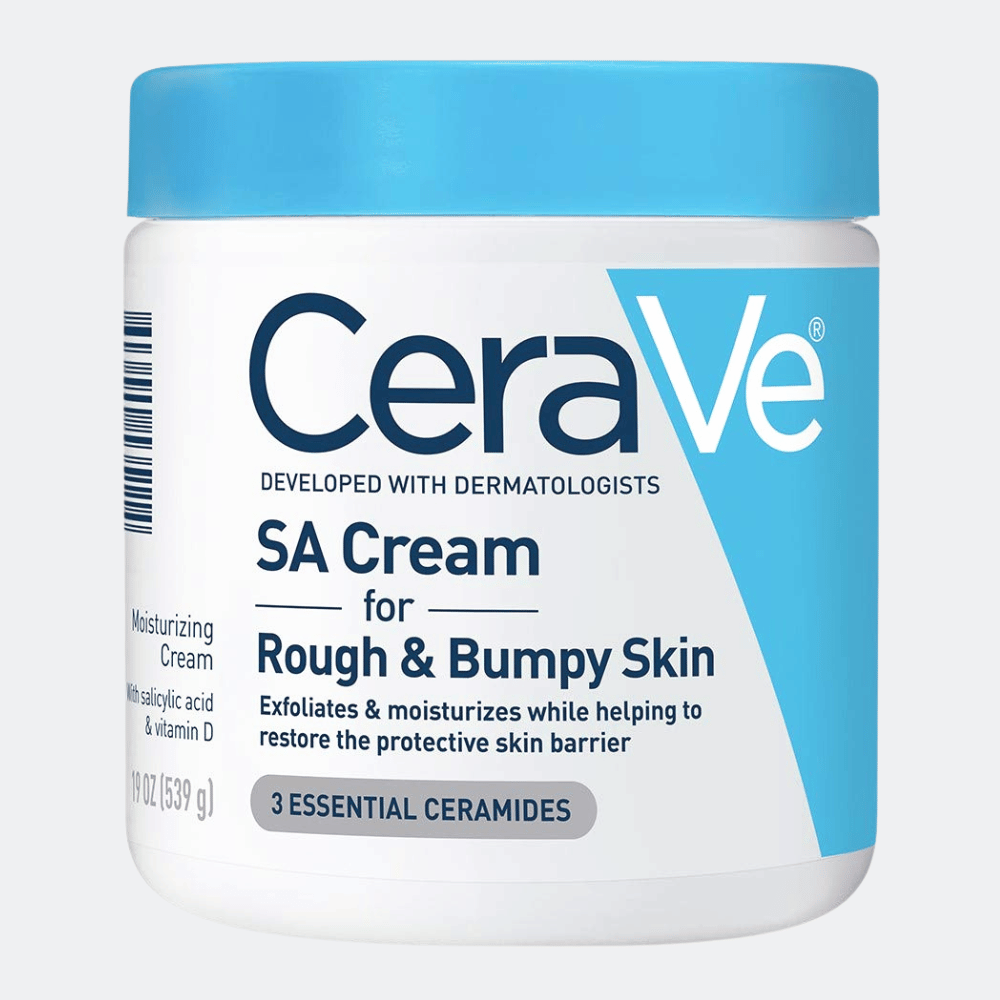
If you're looking for a solution for your itchy skin, try out the CeraVe Moisturizing Lotion and Cream.
They are proven to provide temporary relief from insect bites, sunburns, and poison ivy while leaving your skin feeling soft and non-greasy.
Lightweight Option: CeraVe Moisturizing Lotion for Itch Relief
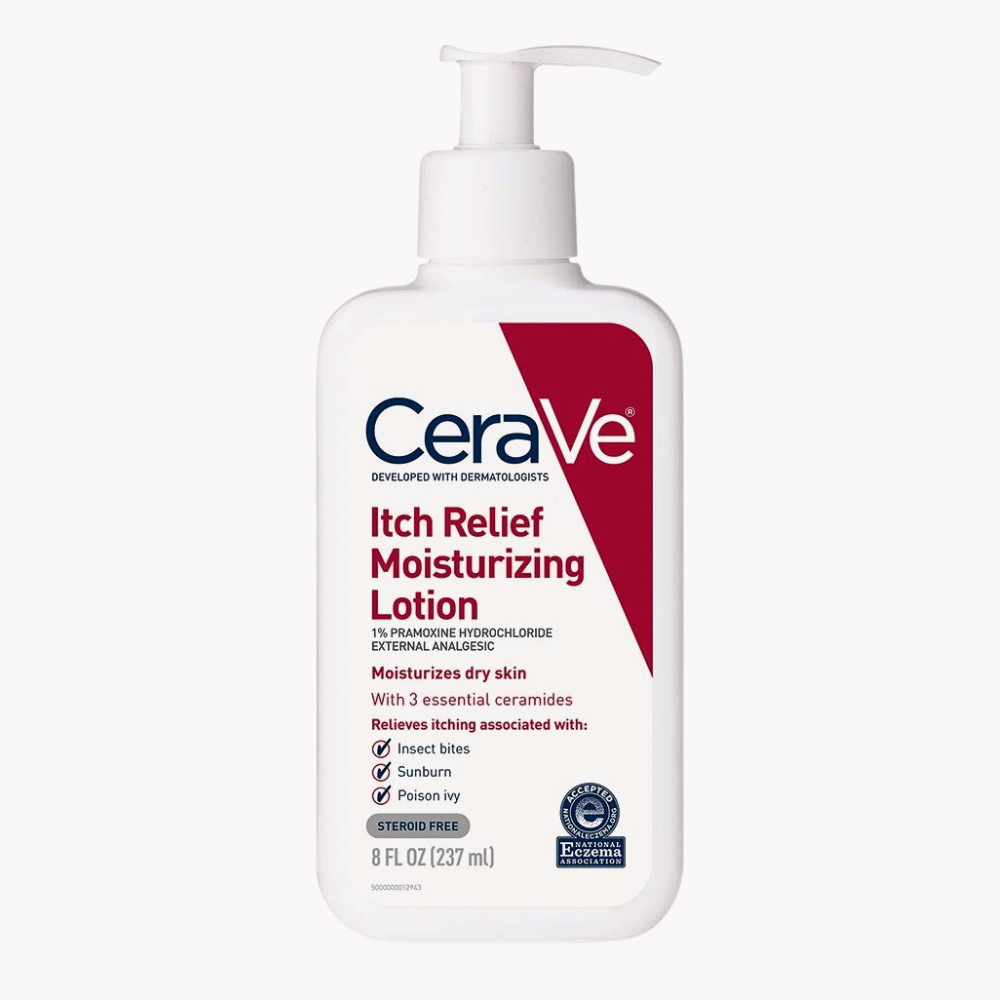
Heavier Option: CeraVe Moisturizing Cream for Itch Relief
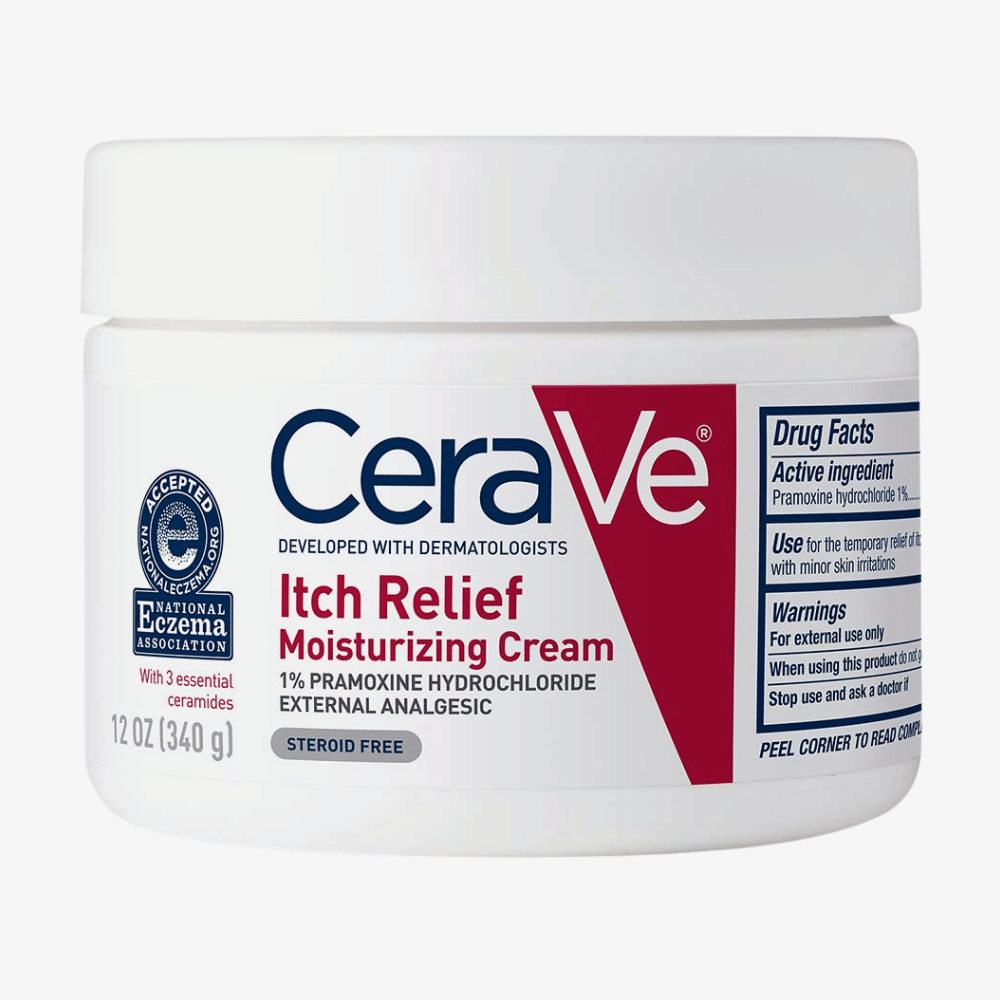
FAQs
A lot of people have questions about skincare products, but they're not sure who to ask and where to start.
It can be hard to know which cream or lotion is right for you, and with all the conflicting information out there, it's no wonder people are confused.
We've got you covered. We've compiled a list of the most frequently asked questions about creams and lotions.
How do creams work?
Creams are a type of topical skincare product that helps provide hydration and nourishment to your skin's natural barrier. They are made up of a combination of lipids, emollients, humectants, and other beneficial ingredients.
The lipids in creams act as a protective skin barrier and lock in moisture. Emollients give your skin an extra boost of hydration while smoothing out any dry patches or wrinkles.
Do creams tighten skin?
Yes, certain creams can help tighten skin and improve its elasticity. From opical retinol-based creams to hydrating hyaluronic creams, there are different products depending on what you are looking for.
Note: While topical creams may temporarily tighten or firm up your skin, they don't produce lasting effects.
What is lotion used for?
Lotion helps keep moisture in and can act as a barrier to protect the skin from contact with irritants like dirt, bacteria, or other particles. People commonly use lotion on their hands or body in order to keep them soft and moisturized - especially if they have dry skin.
It may also help reduce the appearance of wrinkles, scars and stretch marks by making them less visible. Additionally, lotion can be helpful in treating various types of dermatitis such as eczema or psoriasis.
Is lotion good or bad for your skin?
Lotion can be a great addition to help keep your skin hydrated, but it's important to remember that moderation is key. When used in the right amounts, lotion can help you maintain soft and supple skin.
However, when used excessively or too often, it may create an environment where the skin becomes reliant on the moisturizer and cannot exfoliate on its own. This could lead to clogged pores, dryness, and other complications.
How often should I lotion my body? (applicable for creams)
It’s recommended that you lotion at least once a day or twice a day. For those with dry skin, applying lotion twice per day (morning and night) can provide the most effective hydration for long-term results.
On the other hand, if you suffer from oily or combination skin types it may be best to limit daily moisturizing to only one session every 24 hours.
Conclusion: CeraVe Moisturizing Cream vs Lotion
Finding a product that works best for your skin can not only make all of the difference in the world but also give you peace of mind that your skincare routine is taking care of everything your skin needs.
When it comes down to hydrating products, we suggest trying the CeraVe Moisturizing Cream if you suffer from very dry skin, and CeraVe Daily Moisturizing Lotion if your skin type isn’t so extreme.
No matter which product you find yourself choosing, great hydration will be yours. Scroll back over this article today to find out which product is best for you!
How We Curated Our List
There are many options on the market to protect your skin's moisture barrier with many different ingredients to choose from hydrolyzed hyaluronic acid to ceramides for acne-prone skin to normal skin to oily skin.
It can be overwhelming trying to figure out what product is best for you, especially if you're just starting your skincare journey or have super sensitive skin that doesn't allow you to test just any product.
We've taken the guesswork out of it for you and compiled a concise list of high-quality products that will fit both your budget and your needs.
Whether you're looking for a luxury option or something more affordable, we've got you covered.
Thanks for reading!
Like these stories? You will (probably) love our monthly newsletter.

